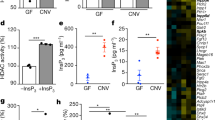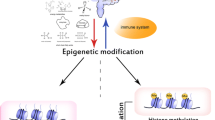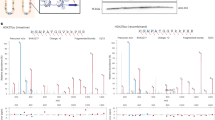Abstract
The epigenome of an organism is as important as the genome for the normal development and functioning of an individual. The human epigenome can be affected by various environmental factors including nutrients, microbiota and probiotics through epigenetic modifiers and mediates various health-promoting effects. The present study was aimed to explore the temporal changes in DNA and histone modifiers (DNMT1, TET2, p300, HDAC1, KMT2A, KDM5B, EzH2 and JMJD3) in intestinal epithelial cells (Caco-2) by probiotic lactobacilli (Limosilactobacillus fermentum MTCC 5898 and Lacticaseibacillus rhamnosus MTCC 5897) in comparison to opportunistic commensal pathogen Escherichia coli (ATCC 14849). Cells were treated separately with probiotic strains and E. coli for different durations and temporal changes in gene expression among DNA and histone modifiers were measured. Time-dependent studies showed that L. fermentum enhanced the transcription of epigenetic modifiers at 12 h of treatment (P < 0.05) contrary to E. coli which reduced the expression of these genes during the same duration of treatment. On the other hand, probiotic L. rhamnosus was not able to induce any significant changes in gene expression of these modifiers. Furthermore, during the exclusion of E. coli by L. fermentum, the probiotic was found to resist the changes made by E. coli in the transcription of some of the epigenetic modifiers. Thus, it is concluded that the probiotics modulated the mRNA expression of DNA and histone modifiers contrarily to E. coli in a strain-specific manner.




Similar content being viewed by others
References
Alenghat T (2015) Epigenomics and the microbiota. Toxicol Pathol 43(1):101–106. https://doi.org/10.1177/0192623314553805
Ashaolu TJ (2020) Immune boosting functional foods and their mechanisms: a critical evaluation of probiotics and prebiotics. Biomed Pharmacother 130:110625. https://doi.org/10.10106/j.biopha.2020.110625
Ashraf R, Shah NP (2014) Immune system stimulation by probiotic microorganisms. Crit Rev Food Sci Nutr 54(7):938–956. https://doi.org/10.1080/10408398.2011.619671
Bedada TL, Feto TK, Awoke KS, Garedew AD, Yifat FT, Birri DJ (2020) Probiotics for cancer alternative prevention and treatment. Biomed Pharmacother 129:110409. https://doi.org/10.1016/j.biopha.2020.11409
Bhat MI, Kapila R (2017) Dietary metabolites derived from gut microbiota: critical modulators of epigenetic changes in mammals. Nutr Rev 75(5):374–389. https://doi.org/10.1093/nutrit/nux001
Bhat MI, Sowmya K, Kapila S, Kapila R (2019a) Potential probiotic Lactobacillus rhamnosus (MTCC-5897) inhibits Escherichia coli impaired intestinal barrier function by modulating the host tight junction gene response. Probiotics Antimicrob 12(3):1149–1160. https://doi.org/10.1007/s12602-019-09608-8
Bhat MI, Kumari A, Kapila S, Kapila R (2019b) Probiotic lactobacilli mediated changes in global epigenetic signatures of human intestinal epithelial cells during Escherichia coli challenge. Ann Microbiol 69(6):603–612. https://doi.org/10.1007/s13213-019-0145-0
Bhat MI, Kapila S, Kapila R (2020) Lactobacillus fermentum (MTCC-5898) supplementation renders prophylactic action against Escherichia coli impaired intestinal barrier function through tight junction modulation. LWT 23:109118. https://doi.org/10.1016/j.lwt.2020.109118
Bhawal S, Kumari A, Kapila S, Kapila R (2021) Physicochemical characteristics of novel cell-bound exopolysaccharide from probiotic Limosilactobacillus fermentum (MTCC 5898) and its relation to antioxidative activity. J Agric Food Chem 69(35):10338–10349. https://doi.org/10.1021/acs.jafc.1c03182
Bhawal S, Kumari A, Kapila S, Kapila R (2022) Biofunctional attributes of surface layer protein and cell-bound exopolysaccharide from probiotic Limosilactobacillus fermentum (MTCC 5898). Probiotics Antimicrob 14:360–371. https://doi.org/10.1007/s12602-021-09891-4
Chandran A, Antony C, Jose L, Mundayoor S, Natarajan K, Kumar RA (2015) Mycobacterium tuberculosis infection induces HDAC1-mediated suppression of IL-12B gene expression in macrophages. Front Cell Infect Microbiol 5:90. https://doi.org/10.3389/fcimb.2015.00090
de Camargo PG, Guimarães GN, Planello AC, Santamaria MP, de Souza AP, Line SR, Marques MR (2013) Porphyromonasgingivalis LPS stimulation downregulates DNMT1, DNMT3a, and JMJD3 gene expression levels in human HaCaT keratinocytes. Clin Oral Investig 17(4):1279–1285. https://doi.org/10.1007/s00784-012-0816-z
Deans C, Maggert KA (2015) What do you mean, “epigenetic”? Genetics 199(4):887–896. https://doi.org/10.1534/genetics.114.173492
Ghadimi D, Helwig U, Schrezenmeir J, Heller KJ, de Vrese M (2012) Epigenetic imprinting by commensal probiotics inhibits the IL-23/IL-17 axis in an in vitro model of the intestinal mucosal immune system. J Leukoc Biol 92(4):895–911. https://doi.org/10.1189/jlb.0611286
Gu TP, Guo F, Yang H, Wu HP, Xu GF, Liu W, Xie ZG, Shi L, He X, Jin SG, Iqbal K (2011) The role of Tet3 DNA dioxygenase in epigenetic reprogramming by oocytes. Nature 477(7366):606–610. https://doi.org/10.1038/nature10443
Gupta T, Kaur H, Kapila S, Kapila R (2021) Lactobacillus fermentum (MTCC-5898) alleviates Escherichia coli induced inflammatory responses in intestinal epithelial cells by modulating immune genes and NF-κB signaling. J Appl Microbiol. https://doi.org/10.1111/jam.15153
Jandhyala SM, Talukdar R, Subramanyam C, Vuyyuru H, Sasikala M, Reddy DN (2015) Role of the normal gut microbiota. World J Gastroenterol 21(29):8787. https://doi.org/10.3748/10.378/wjg.v21.i29.8787
Kanherkar RR, Bhatia-Dey N, Csoka AB (2014) Epigenetics across the human lifespan. Front Cell Dev Biol 2:49. https://doi.org/10.3389/fcell.2014.00049
Kumari A, Bhawal S, Kapila S, Yadav H, Kapila R (2022) Health-promoting role of dietary bioactive compounds through epigenetic modulations: a novel prophylactic and therapeutic approach. Crit Rev Food Sci Nutr 62(3):619–639. https://doi.org/10.1080/10408398.2020.1825286
Livak KJ, Schmittgen TD (2001) Analysis of relative gene expression data using real-time quantitative PCR and the 2(−Delta Delta C(T)) method. Methods 25:402–408. https://doi.org/10.1006/meth.2001.1262
Martins MD, Jiao Y, Larsson L, Almeida LO, Garaicoa-Pazmino C, Le JM, Squarize CH, Inohara N, Giannobile WV, Castilho RM (2016) Epigenetic modifications of histones in periodontal disease. J Dent Res 95(2):215–222. https://doi.org/10.1177/0022034515611876
Neri-Numa IA, Pastore GM (2020) Novel insights into prebiotic properties on human health: a review. Food Res Int 1(131):108973. https://doi.org/10.1016/j.foodres.2019.108973
Neves-Costa A, Moita LF (2013) TET1 is a negative transcriptional regulator of IL-1 in the THP-1 cell line. Mol Immunol 54:264–270. https://doi.org/10.1016/j.molimm.2012.12.014
Niller HH, Masa R, Venkei A, Mészáros S, Minarovits J (2017) Pathogenic mechanisms of intracellular bacteria. Curr Opin Infect Dis 30(3):309–315. https://doi.org/10.1097/qco.0000000000000363
Paul B, Barnes S, Demark-Wahnefried W, Morrow C, Salvador C, Skibola C, Tollefsbol TO (2015) Influences of diet and the gut microbiome on epigenetic modulation in cancer and other diseases. Clin Epigenetics 7(1):112. https://doi.org/10.1186/s13148-015-0144-7
Roobab U, Batool Z, Manzoor MF, Shabbir MA, Khan MR, Aadil RM (2020) Sources, formulations, advanced delivery and health benefits of probiotics. Curr Opin Food Sci 1(32):17–28. https://doi.org/10.1007/s12602-020-09677-0
Rousset M (1986) The human colon carcinoma cell lines HT-29 and Caco-2: two in vitro models for the study of intestinal differentiation. Biochimie (paris) 68(9):1035–1040. https://doi.org/10.1016/S0300-9084(86)80177-8
Roy G, Brar HK, Muthuswami R, Madhubala R (2020) Epigenetic regulation of defense genes by histone deacetylase1 in human cell line-derived macrophages promotes intracellular survival of Leishmania donovani. PLoS Negl Trop Dis 14(4):e0008167. https://doi.org/10.1371/journal.pntd.0008167
Sharma R, Kapila R, Dass G, Kapila S (2014a) Improvement in Th1/Th2 immune homeostasis, antioxidative status and resistance to pathogenic E. coli on consumption of probiotic Lactobacillus rhamnosus fermented milk in aging mice. Age 36(4):9686–9702. https://doi.org/10.1007/s11357-014-9686-4
Sharma R, Kapila R, Kapasiya M, Saliganti V, Dass G, Kapila S (2014b) Dietary supplementation of milk fermented with probiotic Lactobacillus fermentum enhances systemic immune response and antioxidant capacity in aging mice. Nutr Res 34(11):968–981. https://doi.org/10.1016/j.nutres.2014.09.006
Shi LH, Balakrishnan K, Thiagarajah K, Ismail NI, Yin OS (2016) Beneficial properties of probiotics. Trop Life Sci Res 27(2):73. https://doi.org/10.21315/tlsr2016.27.2.6
Takahashi K, Sugi Y, Nakano K, Tsuda M, Kurihara K, Hosono A, Kaminogawa S (2011) Epigenetic control of the host gene by commensal bacteria in large intestinal epithelial cells. J Biol Chem 286(41):35755–35762. https://doi.org/10.1074/jbc.M111.271007
Wu SE, Hashimoto-Hill S, Woo V, Eshleman EM, Whitt J, Engleman L, Karns R, Denson LA, Haslam DB, Alenghat T (2020) Microbiota-derived metabolite promotes HDAC3 activity in the gut. Nature 586(7827):108–112. https://doi.org/10.1038/s41586-020-2604-2
Zhang Q, Zhao K, Shen Q, Han Y, Gu Y, Li X, Zhao D, Liu Y, Wang C, Zhang X, Su X (2015) Tet2 is required to resolve inflammation by recruiting Hdac2 to specifically repress IL-6. Nature 525(7569):389–393. https://doi.org/10.1038/nature15252
Acknowledgements
The authors acknowledge NDRI, Karnal, Indian Council of Agricultural Research (ICAR) for providing the funds and laboratory facilities for the execution of this work. The authors, Ankita Kumari and Shalaka Bhawal are thankful to the Indian Council of Medical Research (ICMR), New Delhi, India for the award of the Junior Research Fellowship (JRF).
Funding
The authors have not disclosed any funding.
Author information
Authors and Affiliations
Contributions
AK designed and performed the experiments, analyzed the data and prepared the manuscript. SB helped to perform the experiments and analyze data. SK helped to design the experiments, and reviewed and finalized the manuscript. RK acquired funding to conduct these experiments, designed and supervised the project, interpreted the results and edited the manuscript. All authors read and approved the final manuscript.
Corresponding author
Ethics declarations
Conflict of interest
The authors declared that they have no competing interests.
Additional information
Communicated by Erko Stackebrandt.
Publisher's Note
Springer Nature remains neutral with regard to jurisdictional claims in published maps and institutional affiliations.
Supplementary Information
Below is the link to the electronic supplementary material.
Rights and permissions
About this article
Cite this article
Kumari, A., Bhawal, S., Kapila, S. et al. Strain-specific effects of probiotic Lactobacilli on mRNA expression of epigenetic modifiers in intestinal epithelial cells. Arch Microbiol 204, 411 (2022). https://doi.org/10.1007/s00203-022-03027-0
Received:
Revised:
Accepted:
Published:
DOI: https://doi.org/10.1007/s00203-022-03027-0




